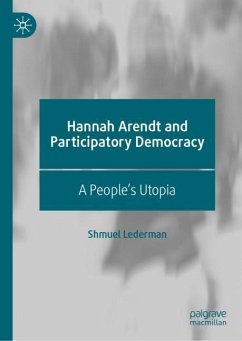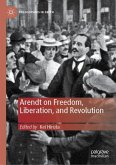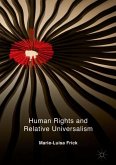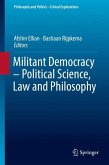This book centers on a relatively neglected theme in the scholarly literature on Hannah Arendt's political thought: her support for a new form of government in which citizen councils would replace contemporary representative democracy and allow citizens to participate directly in decision-making in the public sphere.
The main argument of the book is that the council system, or more broadly the vision of participatory democracy was far more important to Arendt than is commonly understood. Seeking to demonstrate the close links between the council system Arendt advocated and other major themes in her work, the book focuses particularly on her critique of the nation-state and her call for a new international order in which human dignity and "the right to have rights" will be guaranteed; her conception of "the political" and the conditions that can make this experience possible; the relationship between philosophy and politics; and the challenge of political judgement in the modern world.
The main argument of the book is that the council system, or more broadly the vision of participatory democracy was far more important to Arendt than is commonly understood. Seeking to demonstrate the close links between the council system Arendt advocated and other major themes in her work, the book focuses particularly on her critique of the nation-state and her call for a new international order in which human dignity and "the right to have rights" will be guaranteed; her conception of "the political" and the conditions that can make this experience possible; the relationship between philosophy and politics; and the challenge of political judgement in the modern world.








